【Raseela Ishq (2025) Hindi Short Film】
Our Interminable Election Eve
On Photography
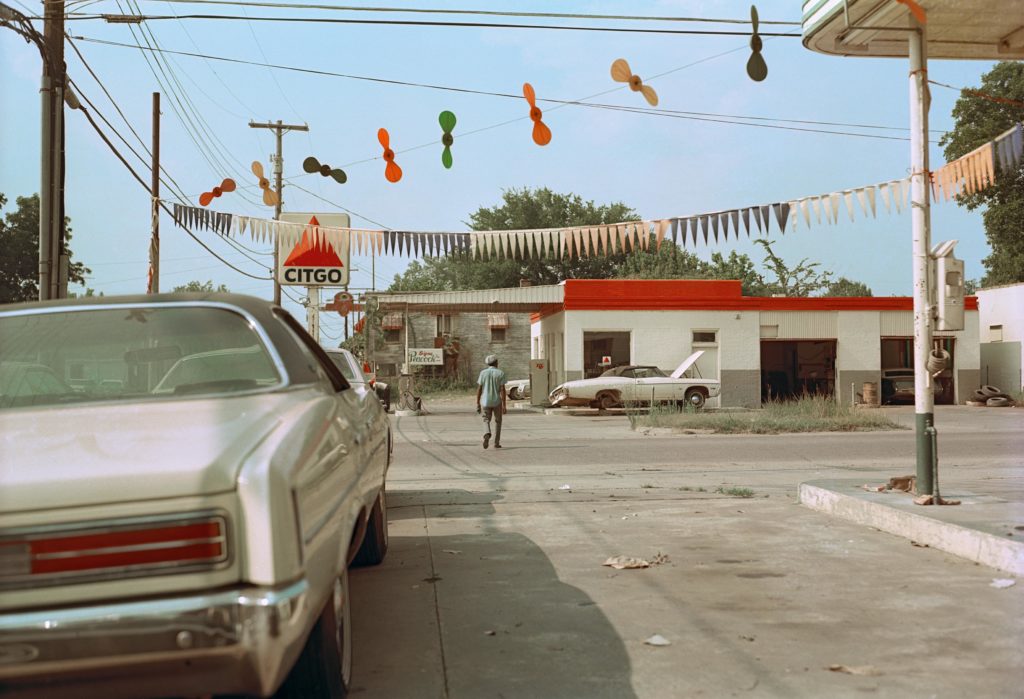
William Eggleston, Mississippi, 1976 © Eggleston Artistic Trust
On the eve of the 1976 election, William Eggleston traveled to Plains, Georgia, to photograph the hometown of Jimmy Carter. The landscapes he captured were overgrown yet restrained, rusting shacks and crooked tombstones. As he travels along the road from Mississippi to Georgia, the quiet buzz of anticipation grows. In Sumter, a car driving down the highway emerges from behind a small shack with advertisements painted on the side. In front, stalks of ryegrass bend with the wind. Every piece of the landscape, from its residents to the trees, is both fluid and static. The photographs in Election Eveemit an eerie quiet—a town on the precipice of transforming from a provincial backcountry to a presidential hometown.
Just months before, Eggleston had exhibited a controversial series of color photographs at the Museum of Modern Art that documented what one critic called the “perfectly banal” lives of white Southerners. It is likely that after seeing the exhibition at the MoMA, an editor at TheNew York Times Magazineasked Eggleston to photograph Carter’s hometown of Plains, Georgia. While the piece never materialized, the photographs he took on the trip were eventually collected in Election Eve, Eggleston’s first published work.
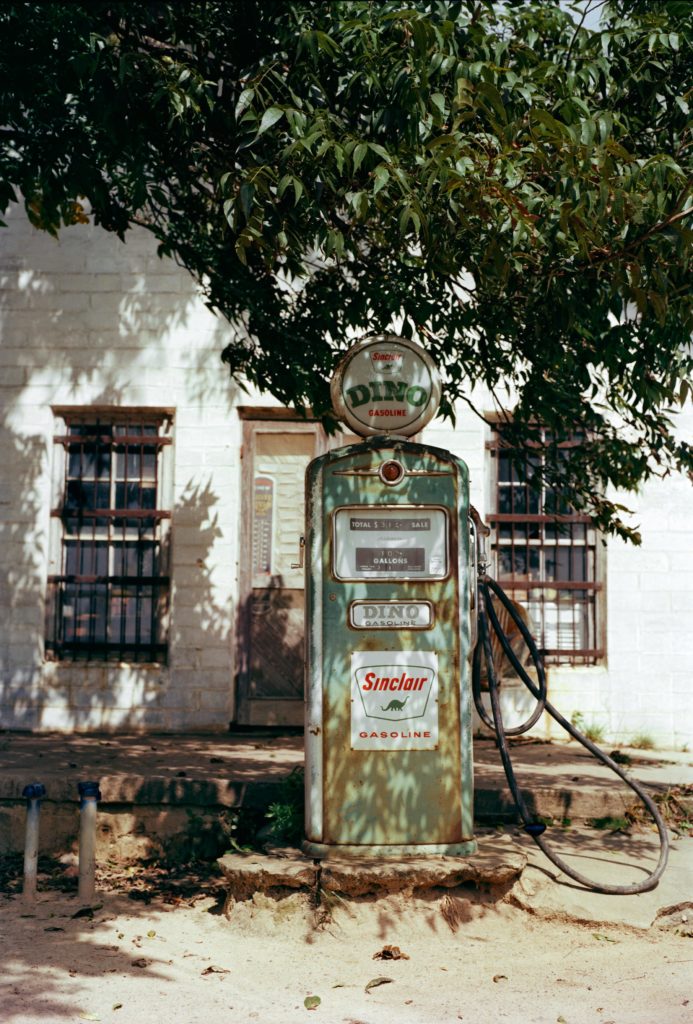
William Eggleston, Sumter, 1976 © Eggleston Artistic Trust
The editor who assigned the piece likely hoped that Eggleston’s interest in the growing prominence of white Southerners would result in colorful portraits of the residents of Plains. But, almost pointedly, human subjects rarely make an appearance in Election Eve. Flickers of life materialize in the background—a dog turning its head, skid marks and soda cans left in the dirt. These traces of human presence remind us that Plains is not a ghost town. Its residents linger just out of sight, frozen, as they await the outcome of the election that, regardless of the result, promised to fundamentally alter their identities and redefine what it meant to be a Southerner.
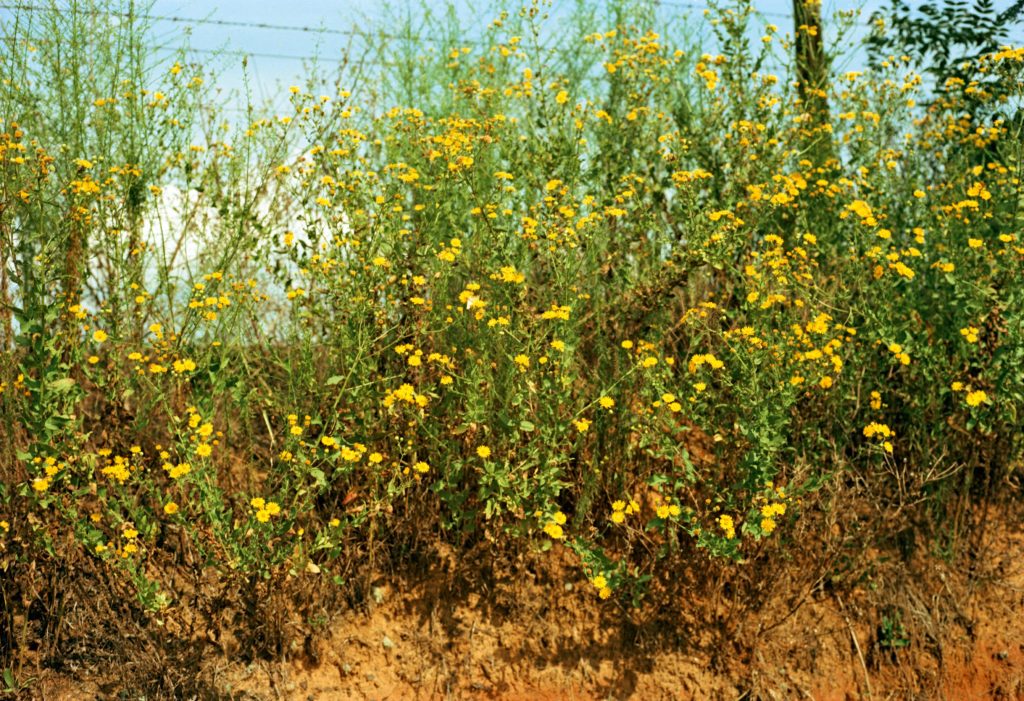
William Eggleston, Mississippi, 1976 © Eggleston Artistic Trust
The disquiet in Eggleston’s photographs reflects the stakes of the 1976 election. If Carter won (and he did), he would be the first Democrat to break apart the Republicans’ Southern strategy, as well as the first president from the Deep South since before the Civil War. For Southerners, Carter was the great unifier and his election a sign that the South had truly, finally rejoined the Union. The next morning, Carter would appear in Plains for his victory speech, where he stressed unity and a “common devotion to this country.”
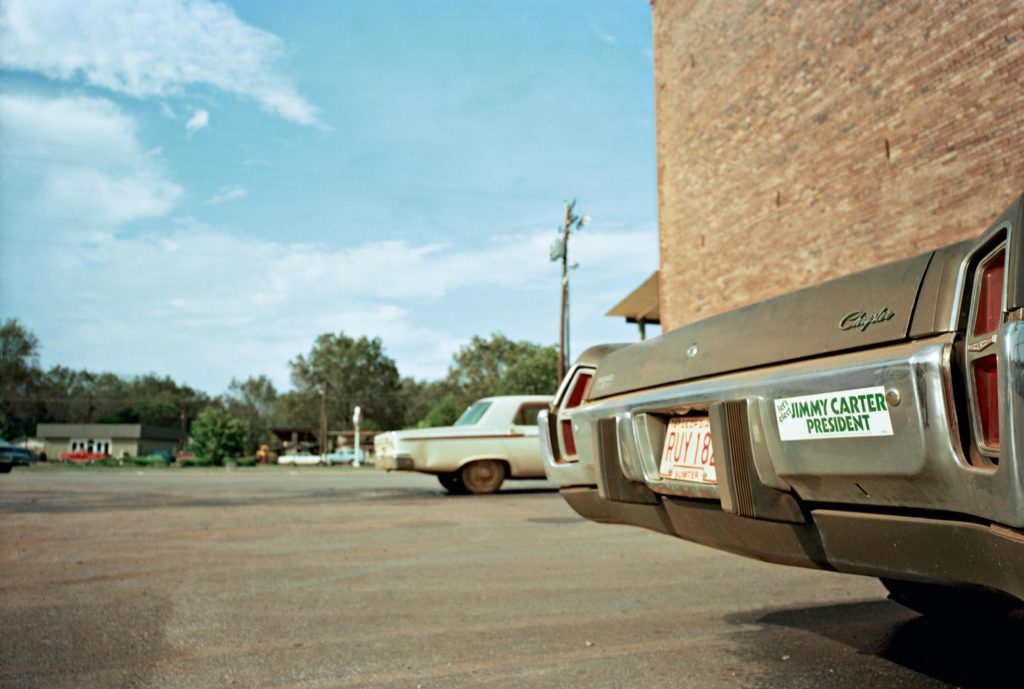
William Eggleston, bank parking lot, Plains, 1976 © Eggleston Artistic Trust
But when Eggleston visited Plains on Election Day, the outcome was still unknown. In his photographs, there’s very little to suggest that there even is an election, let alone that he is in the hometown of one of the candidates. In contrast to the cluttered landscape of Trump signs greeting drivers in the Deep South this year, the landscapes in Election Eveare noticeably stark. In fact, Carter’s name appears only once in the collection—on a bumper sticker crammed into the corner of the photograph. The residents of Plains seem hesitant to make their allegiances known, nervous that a show of faith in Carter would be a tacit admission of how much was on the line.
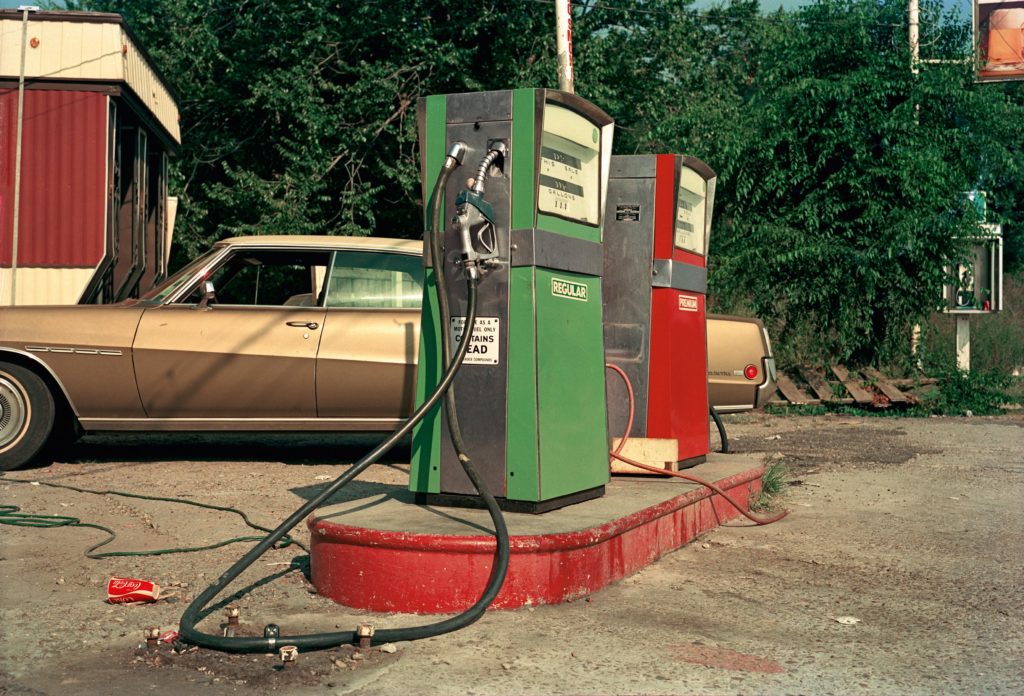
William Eggleston, Mississippi, 1976 © Eggleston Artistic Trust
This past Tuesday night, the South faced a new opportunity to redefine itself. As the demographics of the region move further from the white population that captivated Eggleston, so, too, do its politics shift. While the South has long been majority Black, 2020’s election shows the strides that have been made against disenfranchisement, and how far there is left to go. Georgia, which has only voted Democrat once since it elected Carter, now joins North Carolina and Florida as a swing state. For a moment, even Texas appeared to be within the Democrat’s reach.
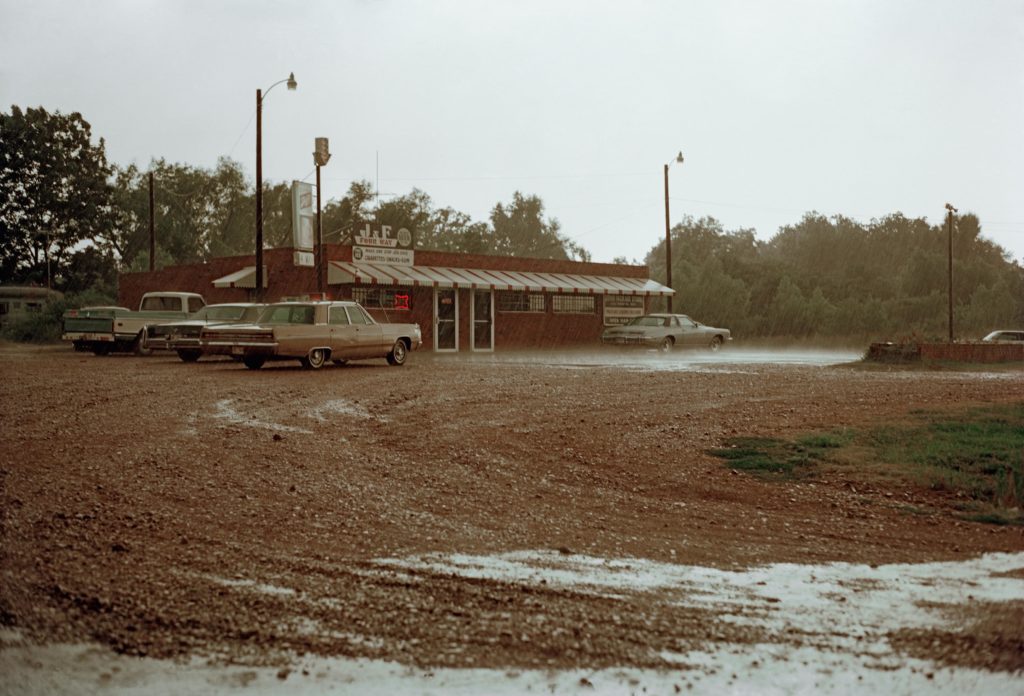
William Eggleston, Mississippi, 1976 © Eggleston Artistic Trust
For weeks, we were told that the presidential race would not be decided on election night. The profusion of mail-in ballots will take time to count, and the results will roll in slowly, they said. While the residents of Plains spent just a day in this liminal space, now the nation endures in it for days, if not weeks. The specters of recounts and legal battles threaten to prolong this sense of in-betweenness in perpetuity. Even after this election is decided, unfounded allegations of voter fraud will leave us in a limbo nearly impossible to shake.
In the introduction to Steidl’s recent reprint of Election Eve, Lloyd Fonvielle notes that Eggleston’s gift as a photographer stemmed from his ability to reveal the “unremarked units of spatial perception by which the everyday world is unconsciously ordered.” Election Evewas not just a document of Plains as it stood on Election Day 1976—rather, Eggleston captured the uncertainty of its residents, the tremendous stakes. As we await the results of the current election, the stakes feel just as high, if not higher.
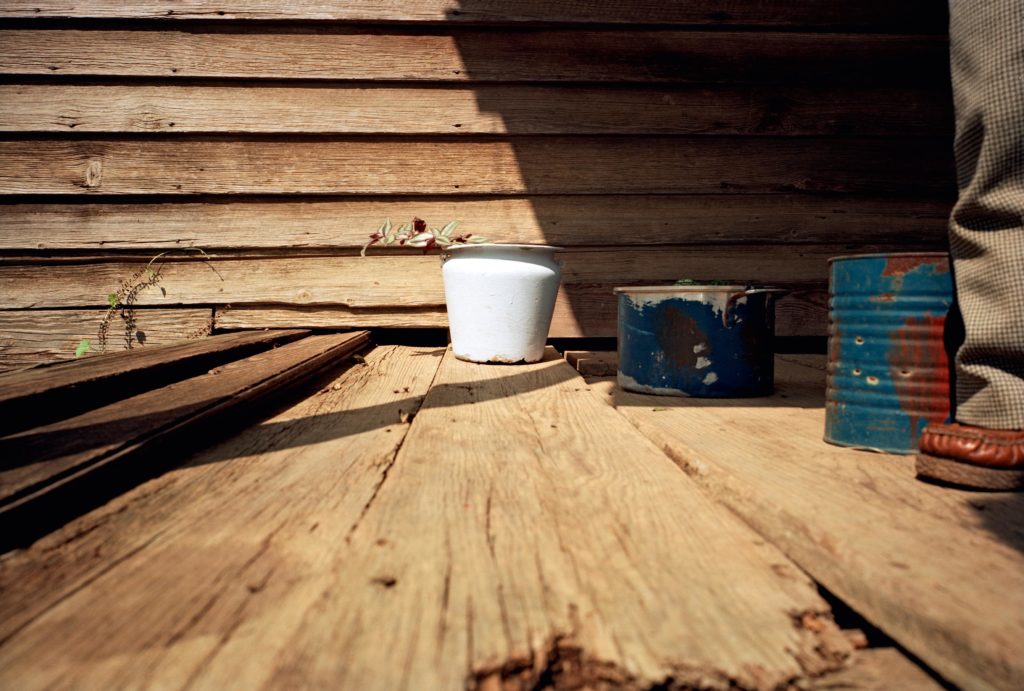
William Eggleston, Election, 1976 © Eggleston Artistic Trust
The visual and informational clutter of this election cycle obscure the underlying reason for our uncertainty. Joe Biden, like Jimmy Carter, has painted himself as a unifier of a fractured nation. His campaign redoubled on the notion that this election was a fight for the “soul of America”—that our self-image as Americans was on the ballot. Like the residents of Plains, we share an unspoken understanding that this election is a referendum on our unity, and the means by which we will define ourselves. Regardless of the results, Eggleston’s photographs are reminders of what hangs in the balance.
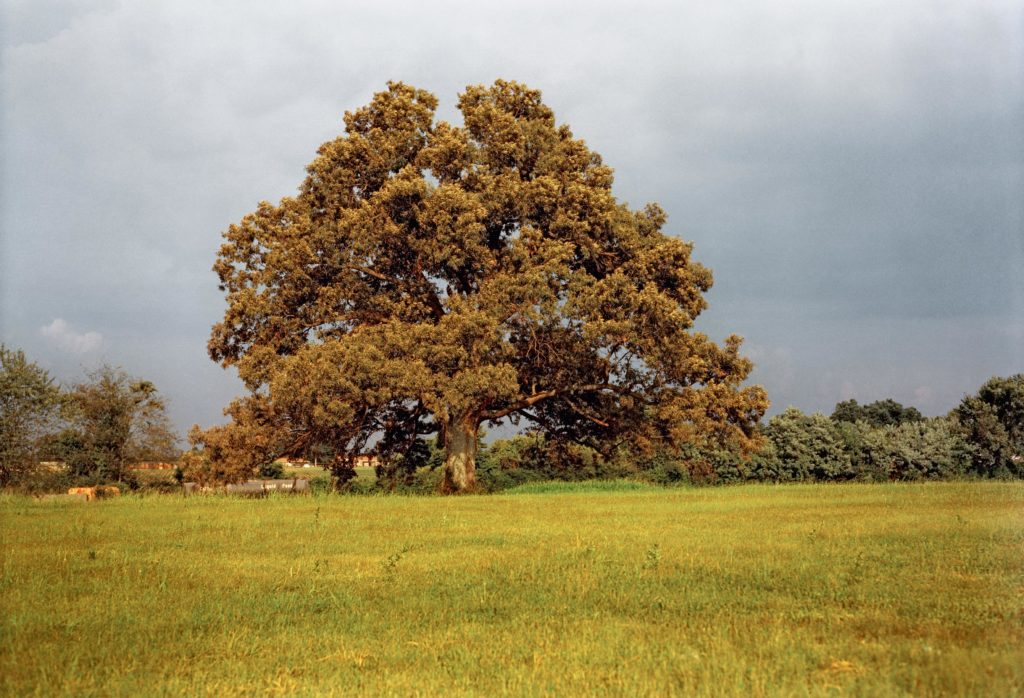
William Eggleston, Election, 1976 © Eggleston Artistic Trust
Jonah Goldman Kay is a writer based in New Orleans. His essays and reviews have appeared in Artforum, The Los Angeles Review of Books, and The Brooklyn Rail.
Search
Categories
Latest Posts
Right to Burn
2025-06-26 01:49Senator's confused 'finsta' rant is a gift to Facebook executives
2025-06-26 00:45Parkland: Urgency and Insurgency
2025-06-26 00:31Popular Posts
Right to Burn
2025-06-26 02:30I have never once 'liked' anything on Facebook. And I never will.
2025-06-26 02:03Prince Harry and Meghan Markle share wedding invite update
2025-06-26 01:57How to get followers on Twitter
2025-06-26 00:20Going Deeper Underground
2025-06-26 00:18Featured Posts
The Death of Media
2025-06-26 02:30Twitter and Jack Dorsey mock Facebook and Instagram outages
2025-06-26 01:43Trump claims he would have confronted Florida school shooter
2025-06-26 01:41Uber reservations at major airports should make pickups smoother
2025-06-26 01:19A Shoot-Em-Up for the Resistance
2025-06-26 01:08Popular Articles
Alliance Against Progress
2025-06-26 01:19Honestly, I don't love this new iMessage feature in iOS 15
2025-06-26 01:10Senator's confused 'finsta' rant is a gift to Facebook executives
2025-06-26 00:22A Shoot-Em-Up for the Resistance
2025-06-26 00:06Newsletter
Subscribe to our newsletter for the latest updates.
Comments (593)
Unique Information Network
Who’s Afraid of Hostile Love?
2025-06-26 02:48Free Flight Information Network
This Instagram cartoonist has accused Domino's of plagiarising her comic
2025-06-26 02:16Impression Information Network
Writer and activist shares Twitter thread about the language people with dwarfism have to deal with
2025-06-26 02:13Reality Information Network
'Venom: Let There Be Carnage' is the spectacularly stupid sequel fans craved
2025-06-26 01:17Sharing Information Network
Complicity, Not Tyranny
2025-06-26 00:26